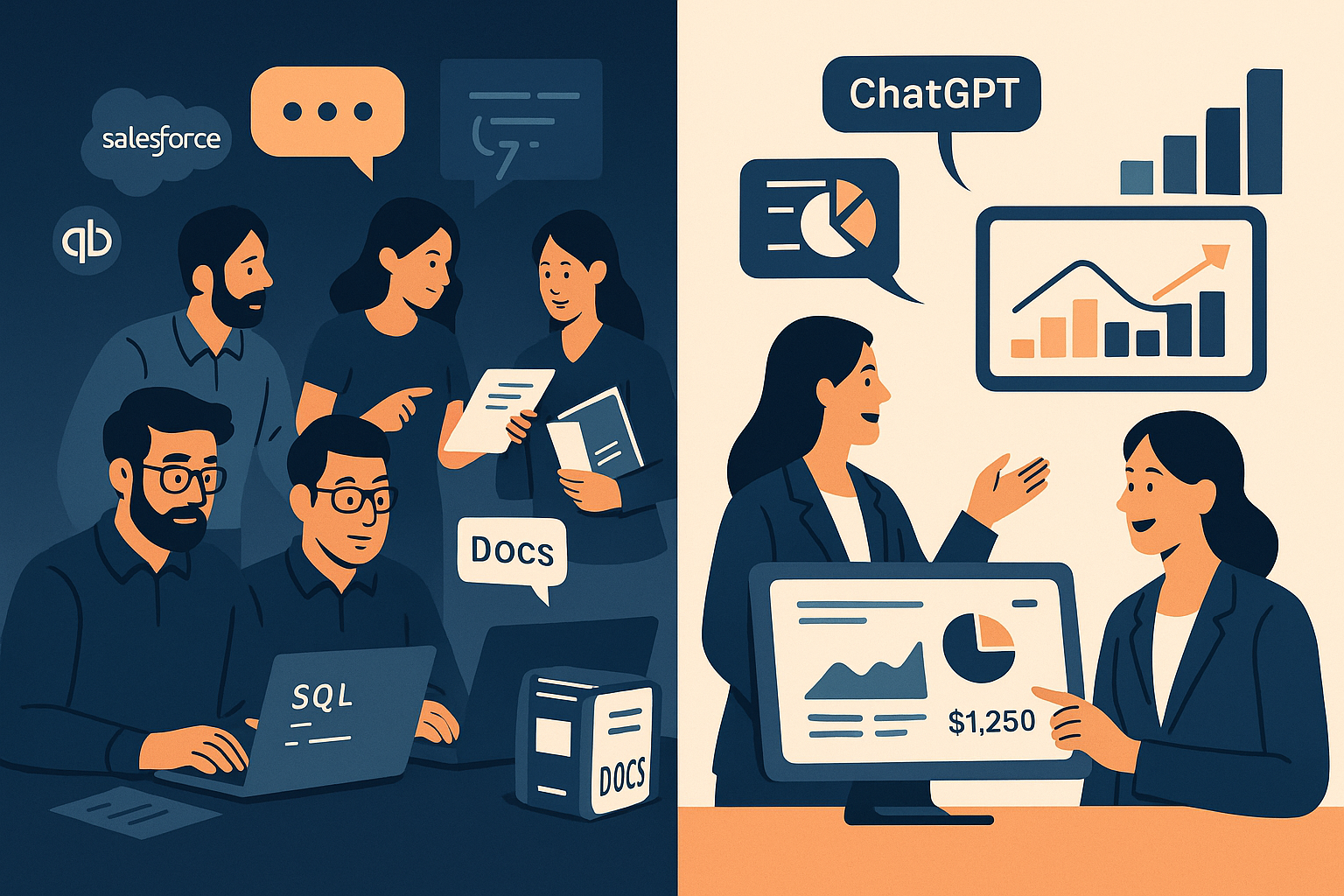Transforming Analytics Support with AI
As a data professional with deep experience, I lead a team for a short stint and built two analytics platforms in the era of “Modern Data Analytics”, focusing on, yes, analytics, strategic planning, and stakeholder relations teams focused on fostering positive relationships within our internal divisions & teams. We provided analytics, analytics support, and and assistance on internal analytics services like dashboards, ad-hoc queries in Looker, and even data pipelines, while also gathering feedback from stakeholders and sharing it with business leads.
To meet an evolving support demand, teams have relentlessly worked on optimizing support workflows and enhancing productivity. This could look like creating automation solutions in Slack, Analytics Request Forms, to even deep documentation and training series. Despite these advancements, we still encounter repetitive questions even though comprehensive documentation exists...
This prompts us to consider…what’s next? Consider AI-driven self-service layer.
This prompts us to consider…what’s next? Consider AI-driven self-service layer.
The advent of ChatGPT and other AI technologies heralds a new era in artificial intelligence, marking a significant milestone in how businesses operate. AI's transformative potential is undeniable—it's automating mundane tasks, enhancing decision-making, and optimizing efficiency across various industries such as the following:
For Stakeholders: Promptly resolving their questions without waiting for a support analyst, leading to faster issue resolution and increased satisfaction.
For Executives: Quickly retrieving relevant information from documentation, aiding in efficiently addressing customer requests.
For Support Teams: Significantly reducing incoming support requests and the resulting support tickets as stakeholders use true self-service analytics.
In summary, here's how AI has proven to be highly beneficial in stakeholder support:
Efficiency Enhanced: (Gen)AI excels in handling routine inquiries, quickly resolving L1/L2 support questions using information from transformed source system data. This allows analysts to focus on more complex issues, optimizing overall productivity.
Self-Service Capabilities: AI empowers customers to resolve their questions promptly, leading to faster issue resolution and increased satisfaction. Moreover, focusing on the critical business questions
Knowledge Management: We can leverage AI-based tools or feature to analyze historical support interactions and generate draft documentation, which is then refined into comprehensive resources for our knowledge management spaces.
While the results are promising, we must set realistic expectations. There is a common misconception that AI can handle everything and make human support unnecessary. While AI is effective, it has its limitations. Here are some considerations:
Have Right Expectations: AI is widely used and has proven useful in many areas, including Customer Success, Account Executives, and other stakeholder support process. However, the nature of support requests greatly impacts AI's performance. Generative AI performs much better in L1/L2 support but is less effective in handling complex issues that require human intervention, such as permissions/access problems or service failures.
Balanced Approach: Finding the right balance between AI and human interaction in the support processes is vital. Ensuring customer satisfaction and maintaining trust while optimizing efficiency with AI is crucial. While generative AI can enhance efficiency and personalization in customer support, the importance of human touchpoints and empathy in the overall customer experience should not be overlooked.
The Importance of Good Documentation: The effectiveness of AI support is heavily influenced by the quality of documentation. Comprehensive, well-structured documentation is the foundation for AI to deliver accurate and efficient support. A robust knowledge base enables AI to resolve common issues quickly, enhancing user satisfaction and reducing resolution times.
Continuous Improvement: Leveraging analytics data and AI-generated reports allows our teams to continuously enhance the quality and completeness of our documentation.
In conclusion, AI is a game-changer for stakeholders. By setting realistic expectations and focusing on comprehensive documentation, we can drive innovation, streamline workflows, and unlock new growth opportunities. I encourage data professionals to embrace this balanced approach to fully realize the benefits of AI while appreciating its limitations.

